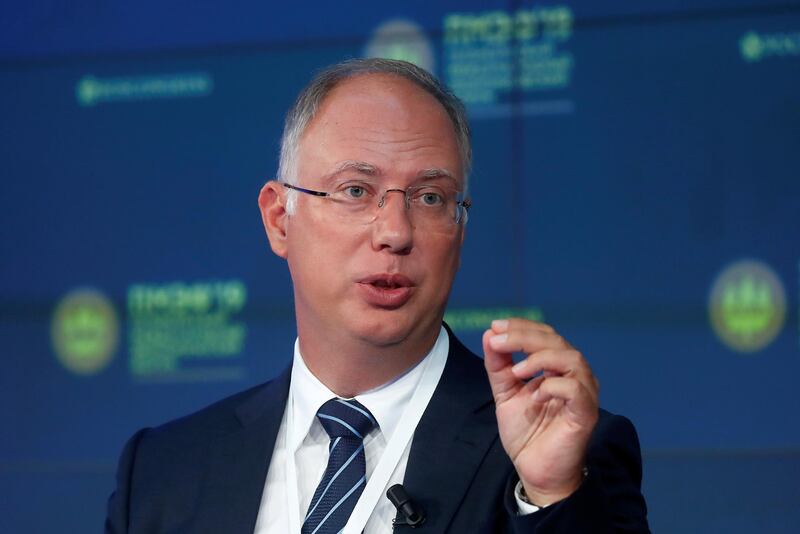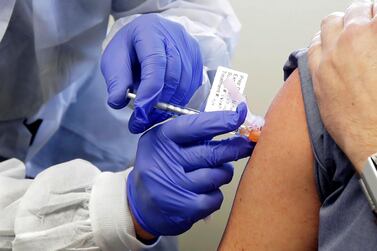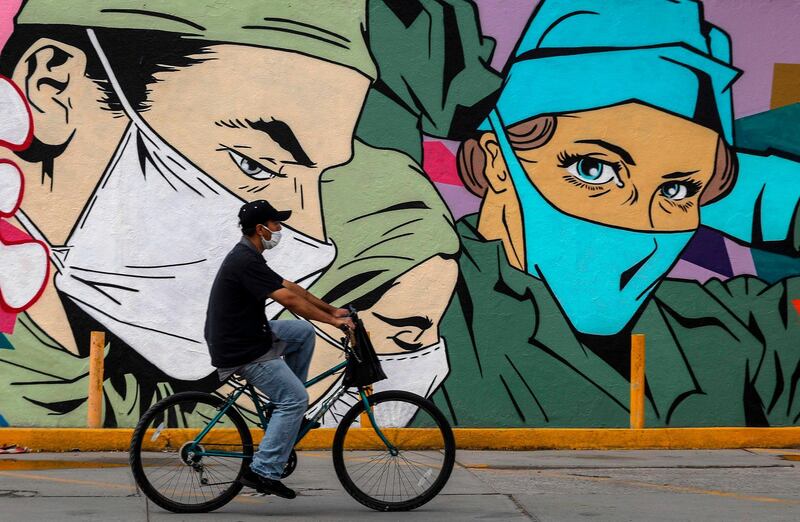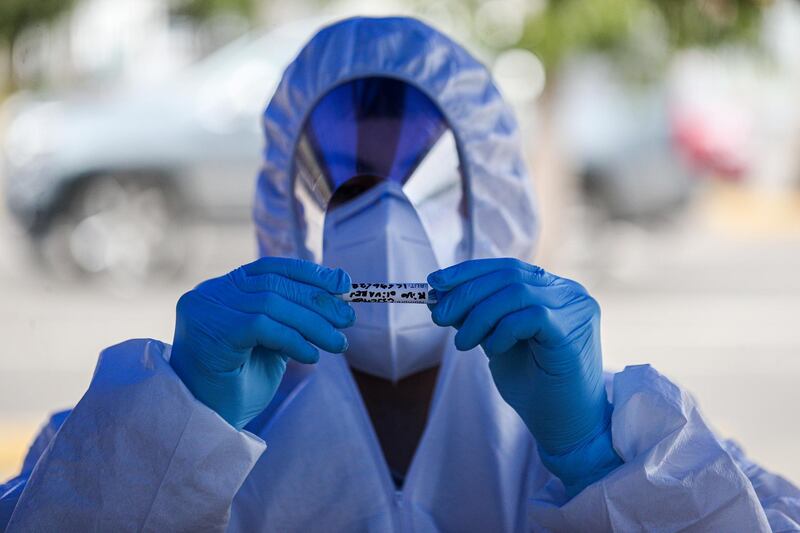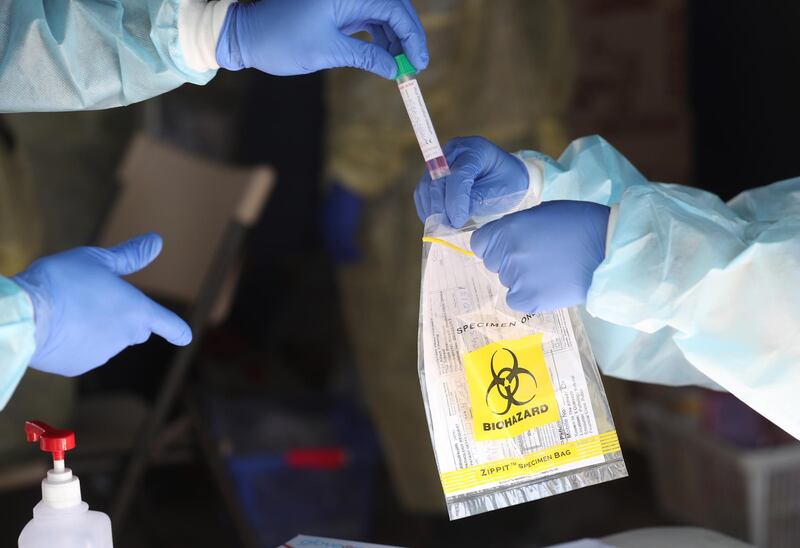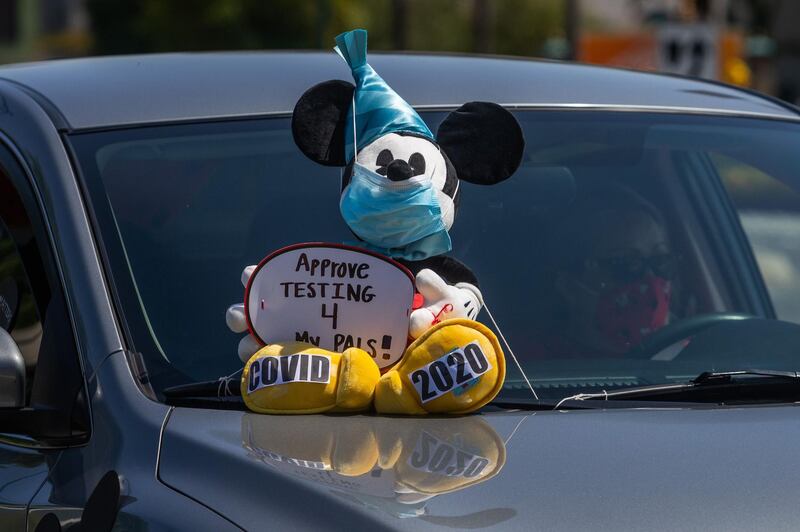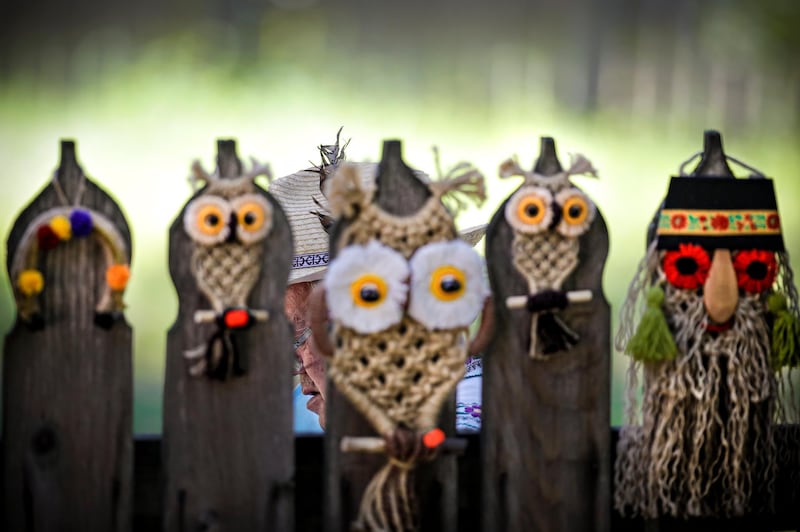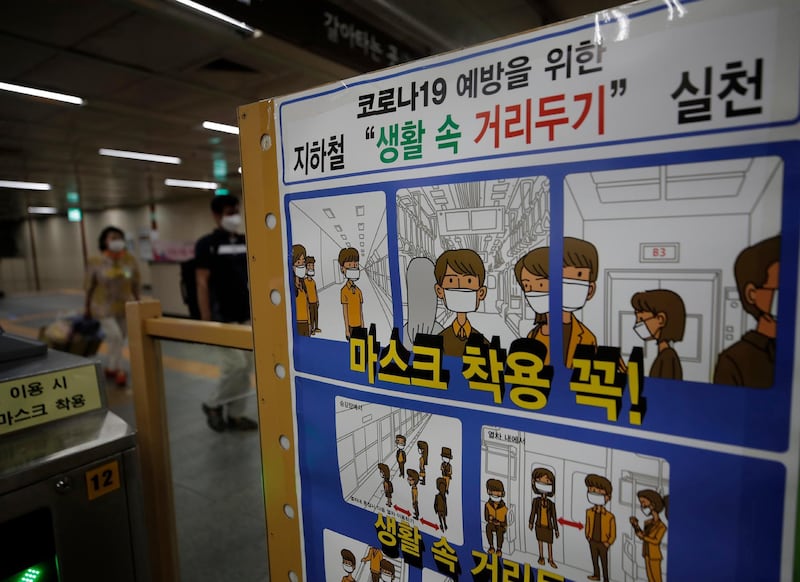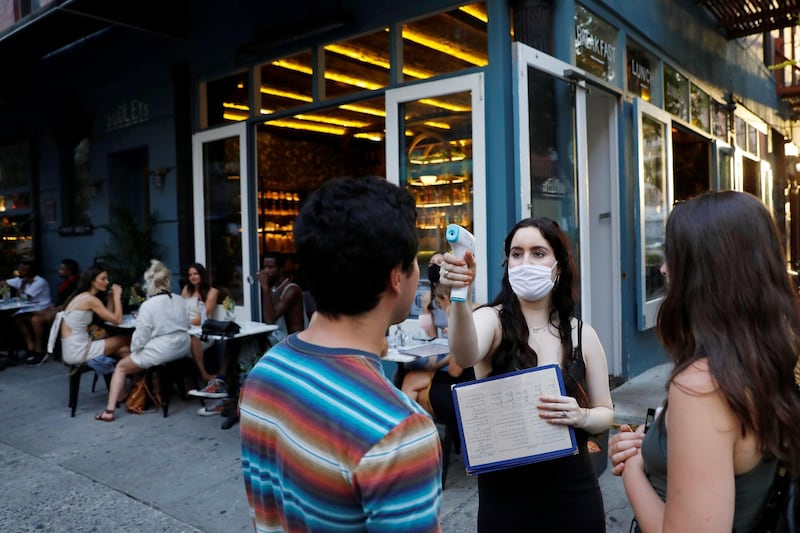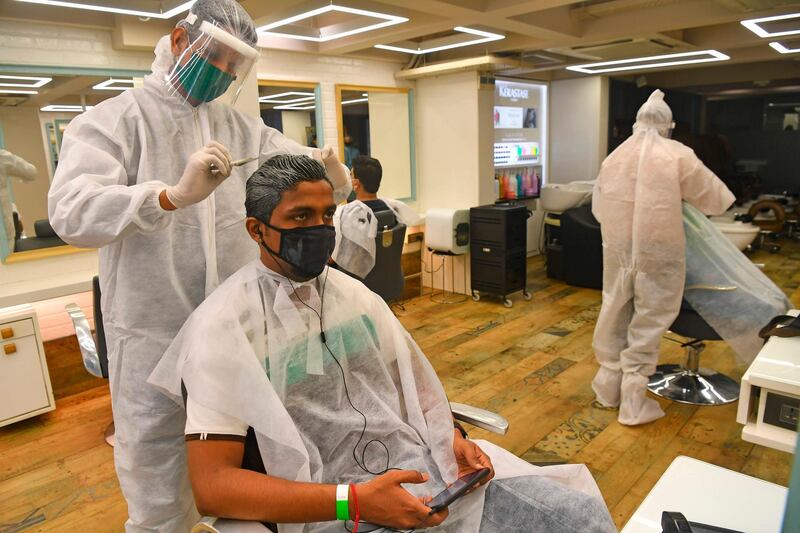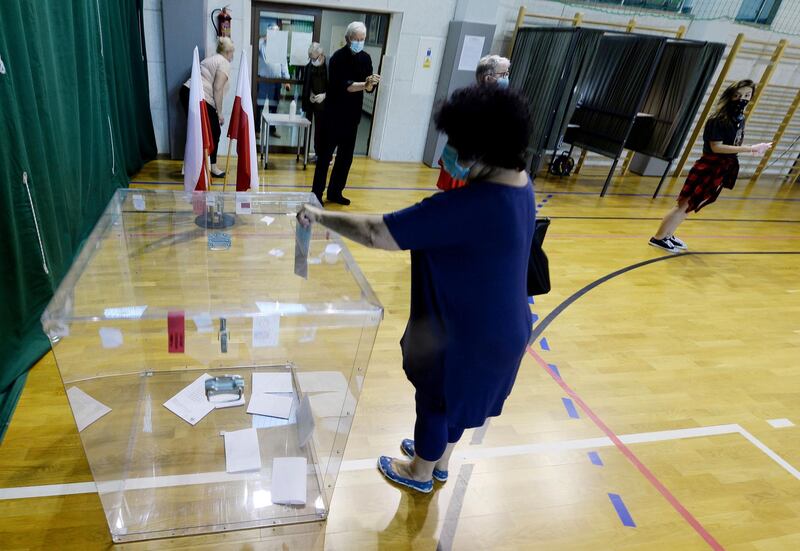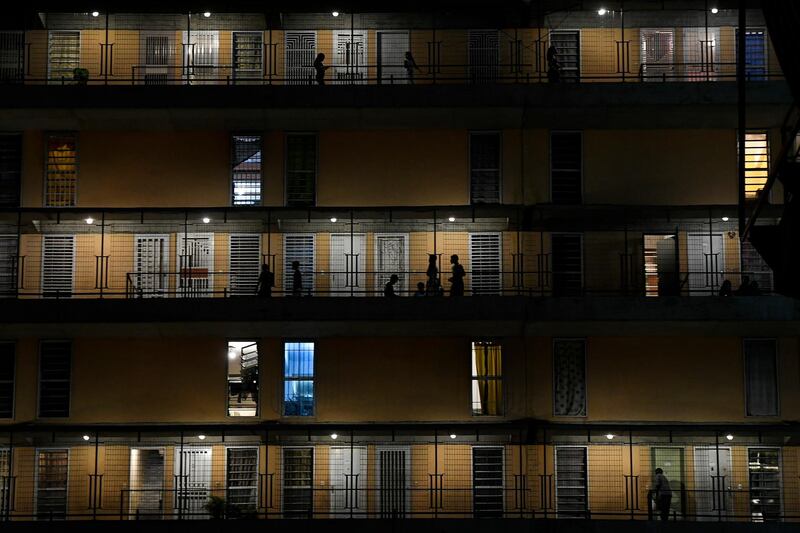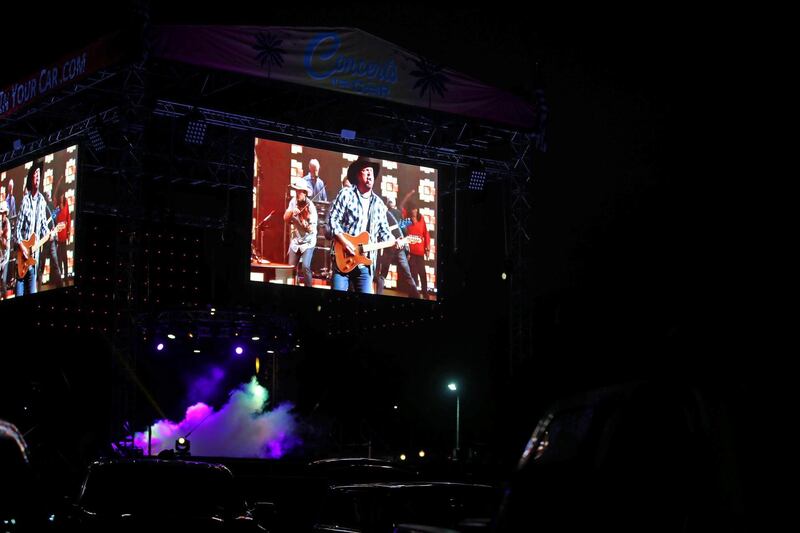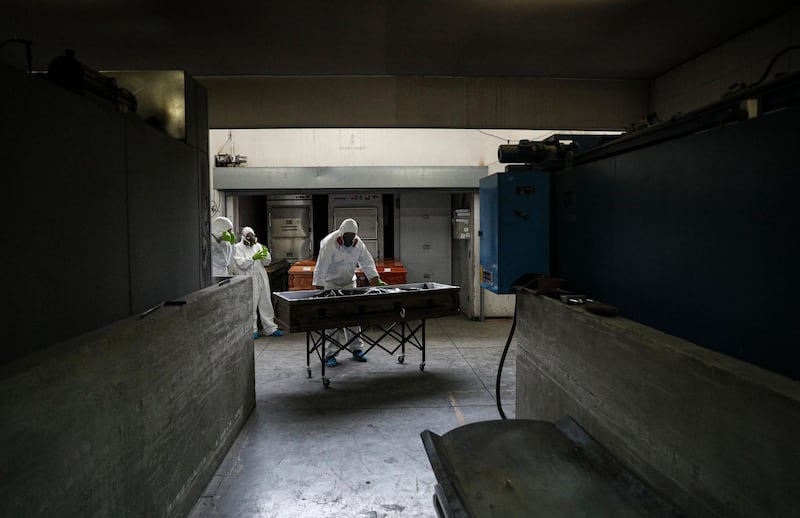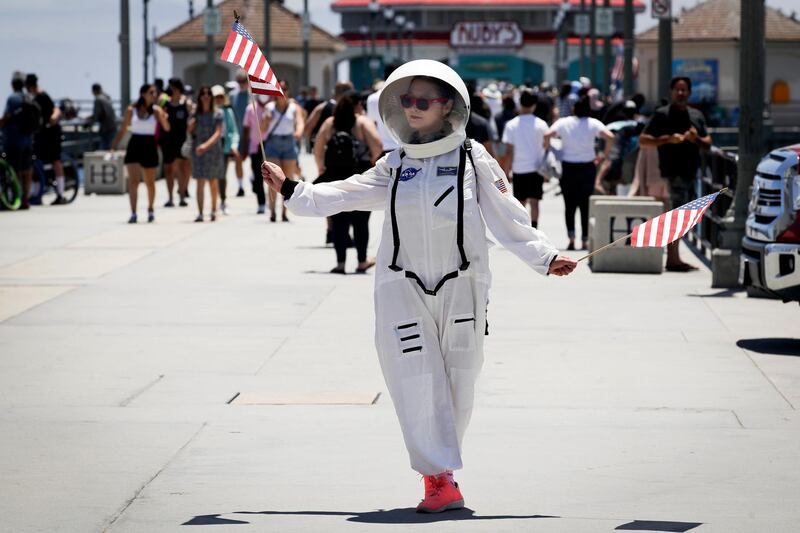Russia aims to secure approval for the first Covid-19 vaccine, which it says has had absolute efficacy against the coronavirus, in the first two weeks of August, the head of its sovereign wealth fund told The National.
Kirill Dmitriev, chief executive of the Russian Direct Investment Fund, which is financing the country’s vaccine research, said the vaccine had been proven in trials on animals and humans.
“It’s a Sputnik moment for many people who didn’t expect Russia to be the first,” Mr Dmitriev said, using a reference to the Soviet Union launching the first satellite, the Sputnik 1 in 1957, which beat the US into space.
There are more than 100 vaccines being developed and tested around the world to stop the coronavirus pandemic, which has infected nearly 17 million people and killed more than 666,000.
The Gamaleya Institute of Epidemiology and Microbiology in Russia, which conducted trials of its own vaccine, is relying on scientific knowledge acquired six years ago in the fight against Ebola and the Middle East respiratory syndrome, a disease caused by a coronavirus, Mr Dmitriev said.
“We do not expect to be the only vaccine out there but definitely based on research I have seen, our vaccine will be the first to be approved,” he said.
“We believe our vaccine in many ways is better than others and we will be completely open to build partnerships to produce it in different parts of the world.”
Russian vaccine developers are using two human adenovirus vectors, not one, to elicit immune responses.
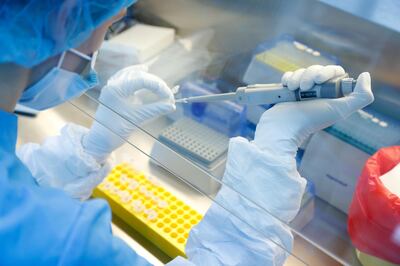
Patients receive a second booster shot three weeks after the first. This enables the body to produce the necessary antibodies.
“Gamaleya said we need to have not just one vector but two vectors, because for immunity to be long-lasting you need to have the strong response of the immune system,” Mr Dmitriev said.
Mr Dmitriev said he was vaccinated, as were his parents, both 74. They are molecular biologists who chose to be inoculated out of scientific curiosity.
The Gamaleya Institute developed what Mr Dmitriev called “a death model on animals”, which proved to be highly effective against the coronavirus.
“On animals the vaccine showed 100 per cent efficiency,” he said.
“Based on Phase 1 and Phase 2 clinical trials, we also show that 100 per cent of about 100 people generated a very high level of antibodies. We know that the vaccine generates antibodies.”
Russian developers will conduct Phase 3 testing as it registers the vaccine for approval in early August.
“Only clinical trials will show how long-lasting this effect is in Phase 3,” Mr Dmitriev said.
“Our understanding is that even if some people may get infected, and we believe that they will not, then the disease will be done in one day or two days because your immune system is very strong to fight it.”
Phase 3 will be carried out in Russia and several other countries, including the UAE, he said.
“We expect UAE clinical trials of our vaccines to be held there and another country in the Middle East,” Mr Dmitriev said.
“The regulatory approval will allow us to give the vaccine in August to our medical personnel and there will be tens of thousands of medical personnel who will receive our vaccine," he added. "In September we will start a gradually massive vaccination of our population.”
Russia expects to produce 30 million vaccines in the country by the end of the year and up to 170 million globally, Mr Dmitriev said. Moscow is partnering with producers in Latin America, Africa, the Middle East and Asia to make the vaccine.
“The UAE is a very strategic partner to us. We have clinical trials in the UAE, and it will be one of our key partner countries to work with on possibly producing the vaccine, but definitely doing clinical trials and working jointly,” he said. “We can also supply the UAE with the Oxford vaccine that we will also be producing in Russia. So, the UAE will have a choice to receive the Russian vaccine or the Oxford vaccine.”
Russia, which has more than 827,000 Covid-19 cases, is against politicising the race to reach a vaccine and is ready to share its findings with scientists around the world, Mr Dmitriev said.
“Unfortunately, this race has some people using dirty tricks to undermine others, but we believe that wisdom and spirit of partnership will prevail. We all need to be partners and forget political divisions and political issues to save people’s lives," he said.
“We don’t believe in vaccine monopoly. We believe the more vaccines are out there, the better.”
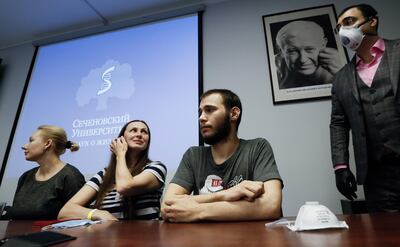
As the virus emerged in the early part of the year, the UAE served as a case study on how to effectively contain the pandemic and was a key source of information for Russian scientists, Mr Dmitriev said.
“In the early days we learned [from the UAE] that testing is very important, and we focused on testing. We learned about some very strong and quick government responses that the UAE has done and some of our responses are a result of working jointly with the UAE,” he said.
“The UAE has really been at the forefront of knowledge on fighting Covid and has really been at the forefront of taking measures to protect its population … and this is one of the reasons why the UAE will be one of the first countries to do clinical trials of our vaccine out of any other country in the world.”
Russia is reaping the benefits of investment made in science and medicine during the Soviet era, unlike the US, which is spending billions of dollars to develop a vaccine, Mr Dmitriev said
Moscow has spent less than $100 million (Dh367m) on the vaccine, he said.
“The amount invested in vaccine production now is much smaller than what the US is using because we already have a lot of vaccine manufacturing capability and we have a lot of infrastructure that has been built,” Mr Dmitriev said.
____________
